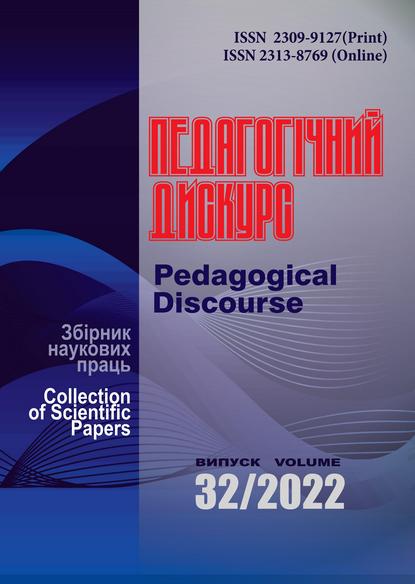Knowledge of Personal Qualities as a Condition for the Formation of Foreign Language Communicative Competence of Higher Education Students
Abstract
The need for theoretical understanding and quality renewal of the educational process in higher education institutions leads to increased attention of scientists to various problems. The search for ways to form the competencies of future professionals in general and foreign language in particular on the basis of knowledge of personal qualities becomes particularly relevant. This is due to the strengthening of international integration processes.
The article, based on the analysis of scientific views of scientists, focuses on the need and importance of the problem of knowing the personal qualities of higher education in the context of the formation of foreign language communicative competence. Analysis of scientific and psychological literature showed that the problem of self-knowledge has been the subject of attention of philosophers, psychologists and educators. Researchers have traced the inextricable link between personal self-knowledge and student characteristics such as professional development, foreign language communication, and activities. The issue of knowledge of personal qualities as a condition for the formation of foreign language communicative competence remains relevant at the present stage of development of scientific thought.
In the context of the importance of this problem, the role of individual knowledge of their own psychological properties in the process of quality foreign language acquisition is characterized. It is theoretically substantiated that the better a student knows himself, the more objectively he assesses his qualities, the more effective the formation of foreign language communicative competence.
It is investigated that in structural terms this process is characterized by the unity of three components: cognitive (self-knowledge); emotional and evaluative (self-assessment); effective-volitional, regulatory (self-regulation). The priority directions of self-knowledge of personal, motivational, intellectual, emotional and volitional spheres are analyzed. There are two main levels in the genesis of self-knowledge. The role of self-esteem as one of the leading mechanisms of cognition of personal qualities and conditions of formation of foreign language communicative competence of future specialists is considered.
Downloads
References
Bekch, I. D. (1998). Osobystisno zoriientovane vykchovannia [Personally Oriented Education]. Kyiv: IZMN [in Ukrainian].
Bekch, I. D. (2012). Osobystist u prostori duchovnoho rosvytku [Personality in the Space of Spiritual Development]. Kyiv: Akademvydav[in Ukrainian].
Hlavatska, O. L. (2008). Osnovy samovychovannia osobystosti [Fundamentals of Self-Education of the Individual]. Ternopil [in Ukrainian].
Miasoid, P. A. (2004). Zahalna psycholohiia [General Psychology]. Kyiv: Vyshcha shkola [in Ukrainian].
Savchyn, M. V. (2018). Zahalna psycholohiia [General Psychology]. Kyiv: Akademvydav [in Ukrainian].
Chorna, V. M. (n.d.). Osoblyvosti inshomovnoi komunikatyvnoi kompetentnosti v udoskonalenni fachovoi diialnosti vchytelia inozemnoi movy [Features of Foreign Language Communicative Competence in Improving the Professional Activity of a Foreign Language Teacher]. Retrieved from http://isp.poippo.pl.ua/article/view/245320 [in Ukrainian].
Copyright (c) 2022 Pedagogical Discourse

This work is licensed under a Creative Commons Attribution-NonCommercial-ShareAlike 4.0 International License.

















